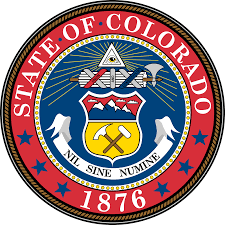Colorado Proposes New Rules for Oil-Gas Lines After Blast

DENVER (AP) — Colorado energy regulators on Monday proposed tighter rules for shutting down oil and gas pipelines after a fatal explosion blamed on natural gas leaking from a line that was thought to be out of service but was still connected to a well.
The Colorado Oil and Gas Conservation Commission rules govern flow lines, which carry oil, gas and wastewater from wells to tanks and other gathering equipment.
A public hearing is scheduled for Dec. 11-12, and the commissioners could vote to approve the rules after that.
The rules are in response to an April 17 explosion in Firestone that killed two people and destroyed a house. Investigators said the explosion was caused by odorless, unrefined gas leaking from a severed flow line.
Investigators said the line was believed to be abandoned but was still connected to an operating well with the valve turned to the open position.
The flow line was severed about 10 feet (3 meters) from the house, and gas seeped into the home’s basement, investigators said.
The well and pipeline were in place several years before the house was built.
The presence of homes and schools near oil and gas operations is a contentious issue in Colorado, where the booming Front Range urban corridor overlaps with an oil and gas field.
The 14-page draft of new regulations says flow lines that are permanently taken out of service must be disconnected, drained and sealed at both ends, and any above-ground portion must be removed. The rules also allow energy companies to simply remove the lines.
Bruce Baizel of the Oil and Gas Accountability Project, which advocates for environmental and community protections from energy development, said the rules should require energy companies to remove all abandoned flow lines to prevent explosions like the one in Firestone.
Removing them would also prevent the leak of any chemicals left in the lines, he said.
Dan Haley, president of the Colorado Oil and Gas Association, an industry group, said he hopes the new rules take into account the differences in energy company operations in the state. The Colorado Petroleum Council, another industry group, is still reviewing the rules and had no immediate comment, Executive Director Tracee Bentley said.
The proposals also require energy companies to provide information on the location of flow lines to the Call 811 program, which marks the site of underground utilities at a property owner’s request. That’s meant to help homeowners and construction companies avoid inadvertently severing a line.
The new rules also revise or add requirements for designing, installing, testing and documenting flow lines.
Related News
Related News

- Trump Aims to Revive 1,200-Mile Keystone XL Pipeline Despite Major Challenges
- Valero Considers All Options, Including Sale, for California Refineries Amid Regulatory Pressure
- ConocoPhillips Eyes Sale of $1 Billion Permian Assets Amid Marathon Acquisition
- ONEOK Agrees to Sell Interstate Gas Pipelines to DT Midstream for $1.2 Billion
- Energy Transfer Reaches FID on $2.7 Billion, 2.2 Bcf/d Permian Pipeline
- U.S. LNG Export Growth Faces Uncertainty as Trump’s Tariff Proposal Looms, Analysts Say
- Tullow Oil on Track to Deliver $600 Million Free Cash Flow Over Next 2 Years
- Energy Transfer Reaches FID on $2.7 Billion, 2.2 Bcf/d Permian Pipeline
- GOP Lawmakers Slam New York for Blocking $500 Million Pipeline Project
- Texas Oil Company Challenges $250 Million Insurance Collateral Demand for Pipeline, Offshore Operations




Comments